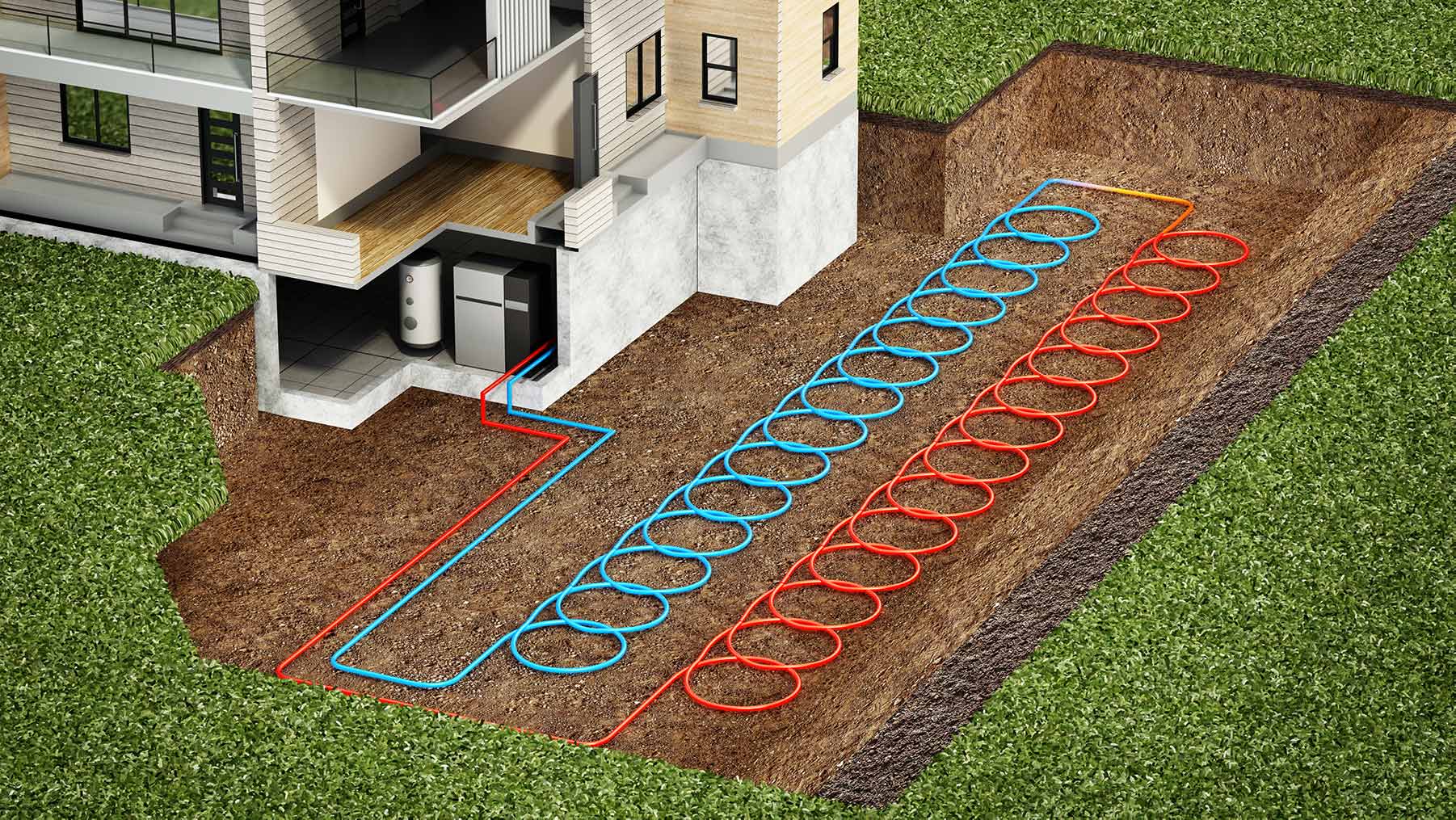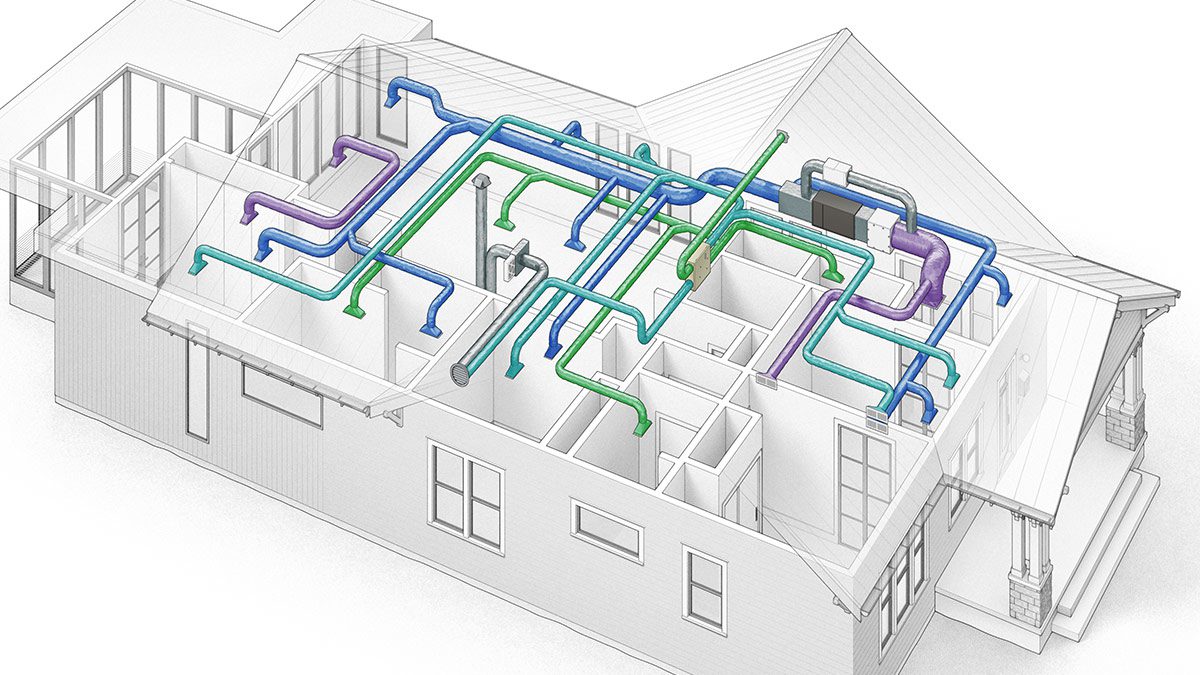Your HVAC (Heating, Ventilation, and Air Conditioning) system plays a vital role in maintaining a comfortable indoor environment throughout the year. Whether it’s keeping your home cool during sweltering summer months or warm in the winter chill, the HVAC system ensures that your living or working space remains at an ideal temperature. However, like any complex mechanical system, HVAC units are prone to wear and tear. Over time, parts may break down, leading to reduced efficiency, increased energy costs, and even system failure. That’s where HVAC repair comes in—a necessary part of home and building maintenance. In this comprehensive guide, we will explore everything you need to know about HVAC repairs, from recognizing early warning signs to understanding repair processes and making informed decisions about maintenance.
1. Why HVAC Repairs Matter
HVAC systems are intricate, involving various components working together to regulate air quality, temperature, and ventilation. A failure in one part of the system can cause a domino effect, compromising your comfort and driving up your energy bills. Moreover, neglected repairs may exacerbate the problem, leading to more expensive repairs down the line or even the need for a full system replacement.
Regular HVAC maintenance and timely repairs are essential for maintaining the efficiency and longevity of the system. Repairing components as soon as issues arise can prevent major breakdowns and ensure that the system operates at its best, keeping your home or business comfortable while avoiding unnecessary expenses.
2. Signs Your HVAC System Needs Repair
Many HVAC problems can go unnoticed until they become significant issues. It’s crucial to be attuned to the signs of a malfunctioning system, so you can address problems before they worsen. Here are common indicators that your HVAC system may need repair:
-
Inconsistent or Poor Airflow: If you notice weak airflow or some rooms feel hotter or colder than others, this could be a sign of a clogged filter, duct leak, or malfunctioning fan. Reduced airflow affects both comfort and efficiency.
-
Strange Noises: HVAC systems are generally quiet, with occasional humming or whooshing noises. If you hear loud banging, rattling, screeching, or grinding, there may be an issue with the blower motor, fan, or other moving parts.
-
Unusual Odors: A burning smell could indicate an overheating motor, while a musty odor could point to mold or mildew growth in the system, possibly in the ducts or evaporator coil.
-
Increased Energy Bills: If your energy bills spike unexpectedly, it could mean that your HVAC system is working harder than necessary. This is often due to poor maintenance, clogged filters, or failing components that force the system to work inefficiently.
-
Frequent Cycling: Short cycling, where the system turns on and off rapidly, is a common issue that could be caused by a malfunctioning thermostat, dirty coils, or refrigerant leaks.
-
Lack of Heating or Cooling: If the HVAC system is not producing heat or cold air as expected, there may be an issue with the thermostat, refrigerant levels, or the compressor. This is one of the more obvious signs that the system needs attention.
3. Common HVAC Problems and Repairs
Understanding the common issues HVAC systems face can help you quickly pinpoint problems and make informed decisions when it comes to repair. Here are some of the most frequent problems and their typical solutions:
-
Dirty or Clogged Air Filters: Over time, air filters accumulate dust, dirt, and other particles, restricting airflow and reducing efficiency. Dirty filters are often the culprit behind poor airflow, system overheating, and increased energy consumption. Replacing or cleaning filters is an easy and cost-effective solution.
-
Refrigerant Leaks: Refrigerant is essential for the cooling process in air conditioners and heat pumps. If your system is low on refrigerant due to a leak, it won’t be able to cool the air efficiently. A technician must locate and repair the leak, and then recharge the refrigerant to the correct levels.
-
Faulty Thermostat: The thermostat is the control center of your HVAC system, setting the desired temperature. A malfunctioning thermostat can cause inaccurate readings, leading to temperature fluctuations and discomfort. Repairing or replacing the thermostat can resolve this issue.
-
Frozen Coils: Frozen evaporator coils can occur when the airflow is restricted (due to dirty filters or blocked ducts) or when there is a refrigerant leak. When the coils freeze, the HVAC system loses its ability to cool properly. Unfreezing the coils and resolving the underlying issue, such as cleaning the coils or refilling refrigerant, is necessary.
-
Blower Motor Failure: The blower motor is responsible for circulating air throughout the system. If the motor malfunctions, airflow will decrease significantly, and the system may even stop working entirely. A professional technician may need to repair or replace the blower motor.
-
Capacitor or Contactor Issues: The capacitor provides energy to the motor, while the contactor is the switch that turns the HVAC system on and off. If either of these components fails, the system may not start or may operate intermittently. Replacing the faulty component typically resolves the issue.
-
Compressor Failure: The compressor is the heart of an air conditioning unit or heat pump, responsible for circulating refrigerant through the system. If the compressor fails, the unit will no longer cool. This is a more serious issue that typically requires a replacement compressor or, in some cases, the entire unit.
4. Choosing the Right HVAC Repair Service
Finding the right HVAC repair service is critical to ensuring your system gets the proper care it needs. Here are a few tips for selecting a reputable HVAC technician or company:
-
Experience and Certification: Choose a technician with years of experience and relevant certifications, such as those from the Environmental Protection Agency (EPA) or the North American Technician Excellence (NATE) certification. This ensures that they have the knowledge and expertise to handle HVAC repairs correctly.
-
Promptness and Availability: HVAC emergencies can happen at any time, so it’s important to work with a service provider that offers 24/7 availability and quick response times. When your system breaks down unexpectedly, you don’t want to wait for days for a technician to arrive.
-
Transparent Pricing: Look for a company that provides clear, upfront pricing. Avoid businesses that offer vague quotes or charge hidden fees. Reputable companies will give you an estimate before starting any repairs.
-
Customer Reviews and Referrals: Check online reviews or ask for recommendations from friends and family. Word-of-mouth referrals are often the best way to find reliable professionals.
-
Warranty and Guarantees: Ensure that the repair work is backed by a warranty or guarantee. A good HVAC service company will offer a warranty on both parts and labor, giving you peace of mind that any potential issues will be resolved.
5. Preventive Maintenance to Avoid Future Repairs
One of the best ways to avoid costly repairs is through regular preventive maintenance. Most HVAC issues can be prevented by taking proactive steps to maintain the system. Here are a few key tasks that should be performed regularly:
-
Change Filters Monthly: Dirty filters are a leading cause of HVAC inefficiency and system failure. Regularly changing the filters can keep the system running smoothly.
-
Clean Coils and Ducts: Clean the evaporator and condenser coils, and inspect the ducts for debris. This prevents clogs and reduces the strain on the system.
-
Inspect and Calibrate the Thermostat: Regularly check the thermostat to ensure it’s functioning accurately and is calibrated to the correct temperature.
-
Schedule Professional Maintenance: Have a professional HVAC technician perform an annual inspection of the system. This will help catch small problems before they turn into major issues.
6. When to Replace Instead of Repair
While repairs can often extend the life of an HVAC system, there comes a point when replacement is the more cost-effective option. If your HVAC system is over 15-20 years old, requires frequent repairs, or has significant issues like a failing compressor or refrigerant leaks, it might be time to consider a replacement. A new HVAC unit can be more energy-efficient, saving you money on utility bills in the long run.
Conclusion
HVAC repair is a crucial aspect of homeownership, ensuring that your heating and cooling systems function efficiently and effectively. By recognizing early signs of trouble, understanding common HVAC problems, and performing regular maintenance, you can keep your system running smoothly and avoid costly repairs. When repairs are necessary, choosing a reputable technician ensures that your HVAC system gets the attention it needs to keep your home comfortable for years to come. Whether you need a minor fix or a major overhaul, staying proactive and informed about HVAC repair can save you time, money, and stress in the long run.




